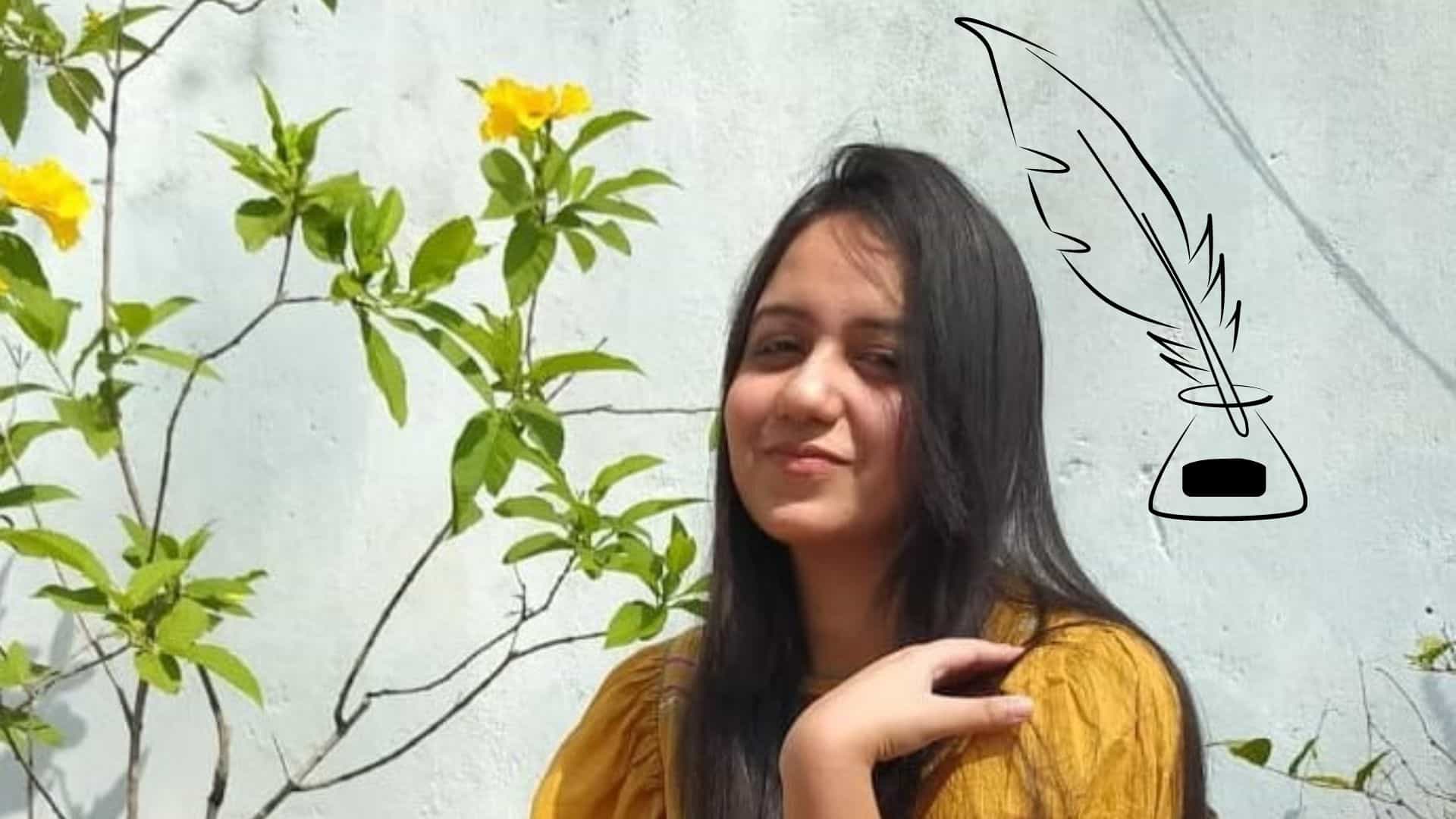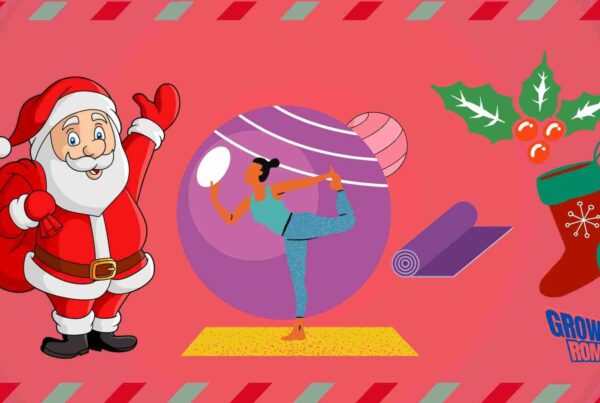The quills of a writer often go unnoticed, and so do the thrills, and the chills of the writing process. In a world where individuals who don’t know a thing about writing are celebrated as brilliant writers (thanks to ghostwriting), there also exist actual writers who are not anti-allergic to the spotlight.
And so, we are embarking (nahi-nahi, this wasn’t a chatGPT suggestion, I prefer to use ’embarking.’ Lol.) on a journey to celebrate writers and capture their journeys in whatsoever ways we can.
Today, we are celebrating someone who aspired to be a fashion designer, but destiny had some other plans for her; better plans.
In conversation with Aleena Simeen
Meet Aleena Simeen, a copywriter and content writer, who most probably would be stroking keys while you follow her writing trails, or maybe like every other writer khyali pulaw paka rahi hogi (daydreaming or building castles in the air)… who knows? :/

Aleena Simeen
She says “Raaton-raat koi writer se great writer nahi ban sakta. It’s a gradual process.” (Nobody becomes a great writer overnight.)
In this interview, she claimed to be happy with the compensation she received at her first job. That’s pretty dubious. Isn’t the entire world underpaid? 😀
Anyway, read this interview and find out her views on what it takes to be a good writer, her writing process, how she looks at the dawn of AI and its impact on the writing world, and a lot more.
Hi Aleena Simeen, please provide a short introduction about yourself.
Hey, I am Aleena, and I am currently working as a copywriter and content writer at a marketing agency. My primary field of writing is fashion and lifestyle.
Aleena, How did you start your journey as a writer? Was it a passion from the beginning?
I wanted to be a fashion designer, but the universe had some other plans for me. I, for some reason, had to opt for English literature while pursuing my graduation, and that’s how my interest in content writing began. And I feel this is the best thing that happened to me.
Interesting, I wonder if any fashion designers wanted to be writers. Then you can judge their fashion designing skills, and they can be the critic of your writing abilities. Okay, PJs aside.
Aleena, could you share how you landed your first writing job or published work?
After completing my Master’s in English Hons from Kolkata in July 2022, I returned to my hometown in Jamshedpur and began my job search on LinkedIn.
I applied to numerous positions to increase my visibility, leading to an assignment request from an advertising agency.
I didn’t know the ‘C’ about copywriting, but I was eager to try.
I submitted the assignment, and within an hour I got a call from the founder saying “We loved your copy”.
I guess my quirky and fun way of expressing things helped me a lot in the assignment, and I too had a little bit of knowledge about the psyche of the audience as I run a small business of handmade gift items made from resin (or resin art, you may say).
However, due to personal reasons, I couldn’t relocate for the role.
Continuing my search, I applied for a remote copywriter position at Gemius Designs Pvt. Ltd.
Within 24 hours, I received an assignment from them.
The next thing I knew, I was giving my interview, and then what? I GOT SELECTED!!!
I think the biggest factor that contributed to my cracking this job was journaling. I am a highly sensitive person, and when your emotions are at their peak all the time, you need to let out some of them so that they don’t overflow. Often, writing is how I choose to outpour my thoughts.
Relocating is a big challenge, esp for people from tier 2 and 3 cities. Though, I believe, post-pandemic, employers are more open to hiring remotely. A blessing in disguise.
You said that you did a BA in English literature, which I’m guessing must have helped you become a better writer, but had you taken any formal writing courses or training to crack jobs?
I didn’t take any courses before I started my job as a content writer. But after I joined, I felt a need for upscaling my skills. So, I took a workshop on copywriting by Pranita Bajoria. She is the best! Would highly recommend her for anyone looking to start their career as a copywriter.
Could you describe your writing process?
The first thing I do while writing a piece of content is to define and understand my target audience. It makes that process so much easier. After understanding the likes, pain points, and psyche of my target audience, I set the tone of my content.
For example, if I am writing for a men’s fashion brand and my target audience is Gen-Z, I will keep my content quirky, and to the point. The reason is that Gen-Zs ain’t got an attention span.
For the final draft, I make sure my blog is precise, adds value to the reader’s life, is in language that is easy to understand, there are no grammatical errors, and is optimized.
How do you manage work/life balance as a writer? Are there any specific strategies you’ve found effective?
That is achieved when you deliver your tasks within office hours.
But writing can be both a passion and a stressor. How do you manage the mental health aspects of being a writer, such as dealing with isolation, anxiety, or writer’s block?
What are some day-to-day challenges you face in your writing career, either working for an agency/company or as a freelance writer?
Creativity needs time;Creativity needs thinking;Creativity needs time to be creative.
Rejection is a part of the writing profession. How do you deal with rejection, and what advice would you give to others facing it?
At a job, receiving critique is a vital part of a writer’s growth. At times, the writer’s draft gets completely rejected. How do you handle critique and feedback on your work?
Rejection is surely a part of life, and you cannot escape it.
You’re giving politically correct answers, don’t you want to smash the head of the guy who is criticizing without any substantial reasoning?
How do you deal with “maza nahi aa raha,” feedback? 😀
LOL! I first laugh a little, like I did when I read this question.
Then I try to explain my point of view in writing that piece of content and what I was thinking when I wrote it, and if uske baad bhi maza nahi aata toh I again ask for suggestions on what’s on your mind. What might help improve this content, and fir Maza aa jata hai. 😀
What are some common pitfalls and misconceptions about being a writer, that you believe aspiring writers should be aware of?
I think the biggest pitfall in a freelance writing career is clients convincing newbie writers that Rs 0.5 per word is the average pay. They say that nobody pays more than that. The ideal pay-per-word is Rs 1, and any client paying less than that is a red flag.
As for misconceptions, I feel that at the start of their careers, writers believe whatever they write is kickass.
Zomato jaisa content likhne ke liye saalon ki experience chahie.
Raaton raat koi writer se great writer nahi bann sakta. It’s a gradual process.
Were you satisfied with the compensation you received for your writing work? If not, what strategies do you think could help command a higher salary as a beginner writer?
I was overly satisfied! When you’re a fresher, companies often make you believe that you deserve to get paid less because you don’t have any “experience.” When I got this job offer, the compensation was good for a fresher, and I did negotiate a bit, but again, I was happy with it.
Many writers struggle with the financial aspects of their careers. What advice do you have for managing finances as a full-time writer, freelance writer, or author, especially in terms of diversifying income streams?
In your opinion, what traits make a writer successful and potentially high-earning in today’s market?
- Understanding market trends
- Versatility in adapting writing style to meet the demands of different audiences and platforms
- Tapping into the emotions of the reader
- Storytelling
- Strong networking for collaboration, referrals, and exposure
The importance of diversity in writing and literature has been increasingly recognized. How do you approach incorporating diversity into your work, and why do you think it’s important?
In today’s digital age, how important is personal branding for a writer? What advice would you give to fellow writers for building their brand?
How important is being part of a writing community or network for your growth and opportunities? Do you have any tips for writers looking to build their network?
How do you stay adaptable and continue to grow in a constantly evolving writing landscape?
What books, online blogs, or social media influencers do you recommend to aspiring writers looking to grow in their careers?
With the constant evolution of technology, how do you incorporate new tools or platforms into your writing process? Are there any specific technologies or software that have transformed the way you write?
How do you view the role of AI writing tools in the writing profession? Do you use them, and if so, how do they integrate into your workflow?
Are there any traps, scams, or misleading advice you’ve encountered that you would caution other writers against?
Looking back on your career, is there anything you would do differently to improve your career trajectory?
What are your future goals and aspirations as a writer? How are you working towards achieving them?
I aim to excel in storytelling content writing.
What do you hope to achieve with your writing in terms of impact on your readers or society at large? How do you want to be remembered in the literary world?
Thank you so much, Aleena. For this candid interview. For taking out time to share your journey. For honest answers.
May you achieve your goals of starting a spec ad platform, and become an impactful writer.
(On a different note, koi dhakka-mukki nahi karega, sabko mauka milega. If you want to share your journey on this blog, reach out to me via LinkedIn or email.)




